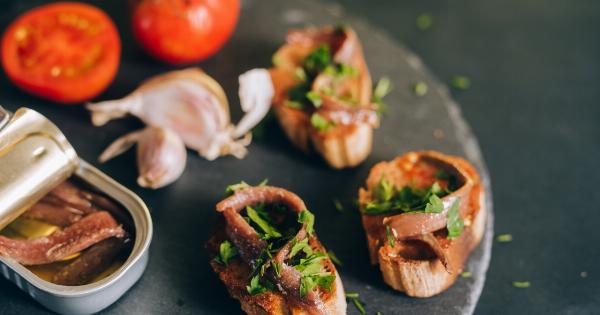Pregnancy is a wonderful journey that brings about numerous changes in a woman’s body. It is a time when a woman needs to focus on her health and well-being more than ever before.
One of the crucial aspects of a healthy pregnancy is proper nutrition. Eating well during pregnancy not only ensures the healthy growth and development of the baby but also supports the overall health of the mother.
Why is Pregnancy Nutrition Important?
Pregnancy nutrition plays a vital role in the growth and development of the fetus. A well-balanced diet during pregnancy provides all the necessary nutrients required for the healthy development of the baby’s organs, bones, and tissues.
It also aids in the prevention of birth defects and helps in maintaining the mother’s energy levels.
During pregnancy, a woman’s body goes through various changes that increase the need for certain nutrients. It is, therefore, crucial to meet these increased nutritional requirements to support a healthy pregnancy.
Key Nutrients for Pregnancy
1. Folic Acid: Folic acid is essential for the early development of the baby’s neural tube and can help prevent major birth defects of the baby’s brain and spine. It is found in foods like leafy greens, fortified cereals, and citrus fruits.
2. Iron: Iron is necessary for the production of hemoglobin, which carries oxygen to the baby. Iron requirements increase during pregnancy to support the growing blood volume. Good sources of iron include lean red meat, poultry, fish, beans, and spinach.
3. Calcium: Calcium is crucial for the development of the baby’s bones, teeth, and muscles. It also helps in maintaining the mother’s bone health.
Dairy products, leafy greens, and fortified plant-based milk alternatives are excellent sources of calcium.
4. Protein: Protein is the building block for the baby’s growth and development. It also helps in repairing and maintaining tissues in both the mother and the baby.
Good sources of protein include lean meat, poultry, fish, eggs, dairy products, legumes, and nuts.
5. Omega-3 Fatty Acids: Omega-3 fatty acids are essential for the development of the baby’s brain and eyes. They are found in fatty fish like salmon, trout, and sardines. Vegetarian sources include chia seeds, flaxseeds, and walnuts.
6. Vitamin D: Vitamin D is crucial for the absorption of calcium and phosphorus, which are necessary for the baby’s bone development. Sunlight, fortified dairy products, and fatty fish are good sources of vitamin D.
7. Vitamin C: Vitamin C is essential for the formation of collagen, a protein that helps build the baby’s skin, bones, and cartilage. Citrus fruits, strawberries, bell peppers, and broccoli are rich sources of vitamin C.
8. Fiber: Pregnancy can often lead to constipation, and fiber plays a crucial role in maintaining regular bowel movements. Whole grains, fruits, vegetables, and legumes are excellent sources of dietary fiber.
Healthy Eating Habits during Pregnancy
1. Eat a Well-Balanced Diet: Include a variety of foods from all food groups to ensure you are providing your body and baby with a wide range of nutrients.
2. Eat Plenty of Fruits and Vegetables: Aim for at least five servings of fruits and vegetables daily to meet your vitamin and mineral requirements. These colorful foods are rich in antioxidants and fiber.
3. Choose Whole Grains: Opt for whole grain bread, pasta, rice, and cereals to increase your fiber intake and maintain stable blood sugar levels.
4. Include Lean Protein Sources: Choose lean meats, poultry, fish, eggs, and plant-based protein sources like legumes and tofu to meet your protein needs.
5. Consume Healthy Fats: Include sources of healthy fats like avocados, nuts, seeds, and olive oil, which provide essential nutrients and help in the baby’s brain development.
6. Stay Hydrated: Drink plenty of water throughout the day to prevent dehydration and support digestion.
7. Limit Processed Foods and Added Sugars: Minimize the intake of processed and sugary foods, as they provide little nutritional value and can lead to excessive weight gain.
Foods to Avoid during Pregnancy
1. Raw or Undercooked Meats: To minimize the risk of foodborne illnesses, avoid consuming raw or undercooked meats, including fish and seafood.
2. Unpasteurized Dairy Products: Unpasteurized dairy products may contain harmful bacteria, so it’s best to stick to pasteurized options during pregnancy.
3. Certain Seafood: Some types of fish, such as shark, swordfish, king mackerel, and tilefish, may contain high levels of mercury, which can be harmful to the baby’s developing nervous system.
4. Excessive Caffeine: High levels of caffeine intake have been associated with an increased risk of miscarriage. Limit your caffeine intake to 200 mg per day (equivalent to a 12-ounce cup of coffee).
5. Alcohol: It is recommended to avoid alcohol completely during pregnancy, as it can lead to birth defects and developmental issues.
Conclusion
Pregnancy nutrition is of utmost importance for a healthy pregnancy and the proper development of the baby.
By following a well-balanced diet and incorporating key nutrients into your meals, you can ensure that you and your baby are receiving the necessary nourishment. Additionally, adopting healthy eating habits and avoiding certain foods can contribute to a smooth and uncomplicated pregnancy. Remember, always consult with your healthcare provider for personalized advice on pregnancy nutrition.
























